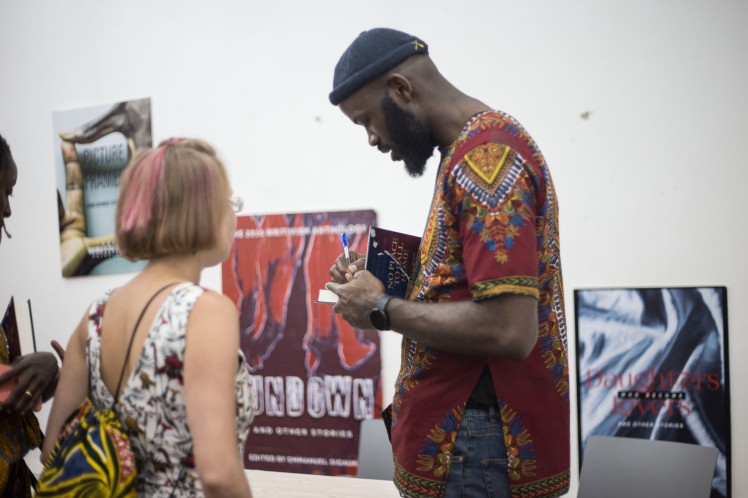by Patsy Mugabi
“No matter how dark it gets through the night, the sun will rise’’-JJ Bola
I couldn’t agree more with JJ that the thing about mornings, is that sun always rises after dark moments in our lives.
A couple of my friends were awestruck by his demeanour at the recently concluded largest Literature party in Africa, Writivism. I blame my friends for their great taste in books since they recommended his book to me. He is described as a writer, poet, an educator, and the debut novelist of No place to call home.

But what I gather from peeping at his conversations that harbour rich poetic vibes on Twitter (his username is African Renaissance) is that he craves no mortal honour. Simply put, he is a talented revolutionist for spearheading a movement of healing for persons that have suffered trauma from violence. I am also curious why the name is and remains as JJ.
The book cover of No Place to Call Home depicts what looks like transition of a river flowing mapped out on the reader’s mind between boarders of countries; Democratic Republic of Congo, Belgium, and Britain. The question on his mind is what place he can call home.
Could it be Kinshasa, a city where he was born? In No Place to Call Home, Kinshasa reeks of cultural diversity. The women are in positions of servitude clad in liputas tied around their waists and kintambulas firmly tied on their heads to complete the look. The men on the other hand are in positions of authority and are affirmative in the action of protecting their families. This does not seem to last for long as there comes a time when political violence looms in the streets of Congo during Le Marcheal’s regime.
What would you do in the heat of such cross fire and exchange? The thought of it makes me shudder.

One father resolves to protect his family by dictating that they collectively flee for refuge. A father like Koko ya Mobali, embodies the word, authoritarian in its most literal sense as he single handedly builds a perimeter wall to fence his family away from the world. He is a strict military man whose authority knows no bloodlines especially when he disowns one of his daughters, Mami who is the middle child with two older sisters; Marthe, Monique and younger siblings; Micheline and Marie. I believe for some reason middle children are always guilty of being the mediators or peace makers. The account on which Mami is disowned was as peaceful as falling in love with Papa.
The love between Papa and Mama was an intricate mix of passionate sacrifices and fervent patience when Mama extended their home for visitors like Tonton and Madeline’s entire family. In as much love, loss and belonging are closely intertwined through the thirty-eight chapters, Jean and his family do not merely survive, they thrive.
Jean embarks on a journey of discovering himself despite the repetitive immigrant stereotypes, mispronouncing of his name (written like the name of the cloth ‘Jean’ but pronounced as ‘John’). He endures through the melee of languages from Lingala, French, and English. Jean acquires the art of understanding and reacting in the most masterfully scripted way as if he has known all along. Jean also suffers acute parental pressure to be a good son to Mr. Ntanga and a friend to a ‘bad boy’ like James and not forgetting the sibling rivalry with his little sister Marie.
Mama, Papa, Jean, and Marie have several common denominators such as earning refugee status as they attempt to settle in Britain. They are all living in some state of what could be purgatory and make the most of it. They make it a place they can call home. But for how long, one wonders?
When I read JJ Bola’s No place to call home, I reckon this fictious world he writes about is one I live in. I heed to his clarion call to constantly evaluate my life in the face of violence and make the decision best for not only myself but everyone. This is what Papa does and his fate changes course when the reality of being deported comes knocking on their door at this place they have come to know as home.
And guess what, you will also have to be enveloped in this anxiety until you read the epilogue.
